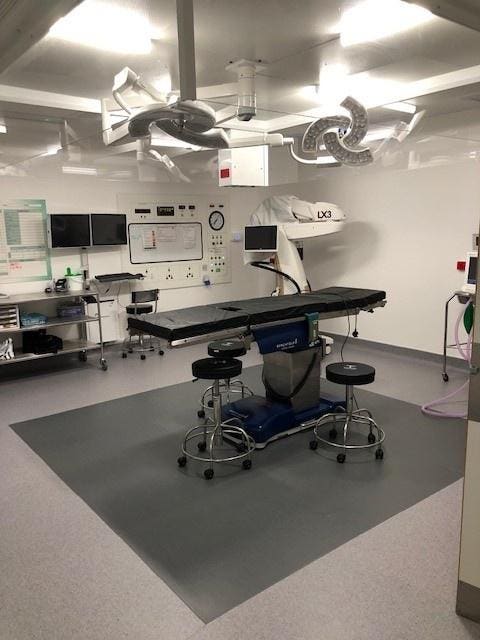By any measure, the acquisition of BMI Healthcare, a U.K. private hospital operator, by rival Circle Health was an ambitious move. The 2020 deal involved Circle, which had only been founded in 2004 but had the financial backing of a U.S. owner, buying one of the traditionally bigger players in its market and immediately becoming the biggest operator in the sector. It went from running three hospitals to having more than 50, while revenues have jumped by about 800% to approximately £1 billion a year. At the time of the deal an industry observer was quoted as describing it as “one of the most significant events in the hospital market for almost a decade” and added that, while the sector faced big challenges, Circle had “the potential to reinvigorate the sector.”
The driving force behind this deal and the related investments in technology, particularly digital innovation, is Paolo Pieri, who became chief executive in 2016 after stints as chief financial officer at Virgin Megastores and then the travel company lastminute.com. But the company’s decision to make its focus on people — both patients and staff — a key differentiator places significant responsibility on the shoulders of chief people officer David Cooper.
In a recent interview, Cooper, who joined Circle in the wake of the deal, explained how this approach worked in practice. He has had an extensive career in the National Health Service and for a while had a senior role at the Royal College of Nursing, which as the U.K.’s professional body for nurses is currently at the heart of the profession’s dispute with the government over pay and conditions. He had never previously worked in the private health sector, but has been impressed by the commitment of Pieri and his colleagues to “creating a very different philosophy and approach to how you do business.” (Full disclosure: I was a Circle patient last year and was indeed impressed by the care.)
As he said, that commitment was immediately tested by the pandemic. The company’s response was to play its part in supporting the NHS and also do right by its people, including setting up a wide-ranging furlough scheme that unusually included “bank staff,” those who work nursing shifts often at short notice.
The key for Cooper has been combining the BMI values with what is known as the Circle credo to create a powerful culture built on “two really strong beliefs” — that patients come first and believing in the company’s people. Given that BMI had changed hands a few times in recent years, Cooper acknowledged that there was a challenge in convincing employees that the new owners meant what they said. But he said he was encouraged by the progress seen in the staff surveys carried out over the past three years, and it has been named as one of the best companies to work for in the U.K..
An important element is the work done on staff wellbeing and empowering all levels of employees to talk about concerns. Both Pieri and Cooper are known to be accessible to staff. Crucially perhaps, Cooper insisted that the company’s values apply to the 6,500 consultants who typically work for the NHS but enjoy “practising privileges” to do their private work with Circle. There have been “one or two cases” where those privileges had been withdrawn over a failure to match the company’s values, he said.
At a time when there is much debate over the role of management in the NHS, Circle sees great value in an approach that integrates those responsible for the clinical and nursing work that is after all central to the business with general management. The company, which has a core workforce of about 9,500, with about 4,500 bank staff, on top of the 6,500 doctors, is also investing significant sums in learning and development.
It has teamed up with Liverpool Business School to develop a leadership course that initially involved the company’s 300 top leaders. Since then 600 leaders have gone through it and the program is being extended to middle and more junior managers. The company is also using the government’s apprenticeship levy to partner with colleges close to its hospitals to enable all employees to learn new skills so that, as Cooper said, “staff are able to stay with us and develop a career.” Already, the company has seen a receptionist become a nurse and a nurse retrain as a physiotherapist. A newly-appointed executive director at one of the company’s clinics started as an administrator for bank staff at the same location.
Cooper admitted that he and his chief executive had “become obsessed with recruitment” after realising that for every person hired they were losing one. Acknowledging that people have a choice of where to work, he said the secret to retention was — assuming the pay was ok — having the right culture and development. “You have got to have an eye on what people can do.”
Read the full article here




